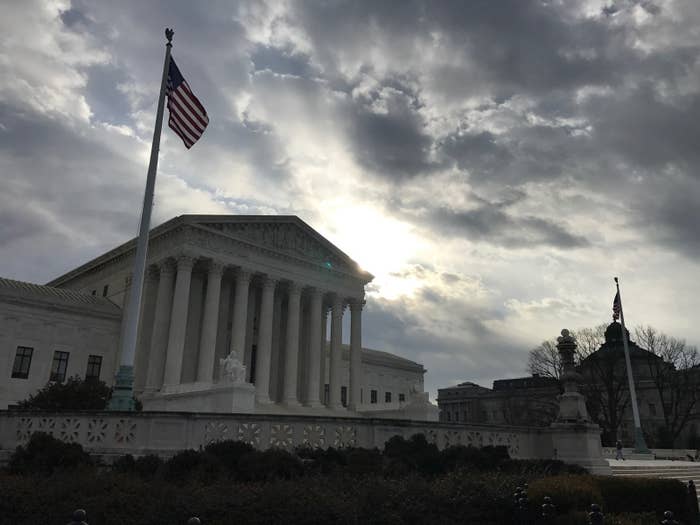
WASHINGTON — The Supreme Court on Wednesday heard a case over a law that allows the federal government to deny a trademark that "disparages" people or groups, with the justices highly skeptical of a government rule that some said was a type of viewpoint discrimination.
At issue here is the Slants, a Portland, Oregon-based band, which the US Patent and Trademark Office determined was disparaging to people of Asian descent — despite the fact that members of the band are Asian-Americans. The case, however, has broad implications for other trademark disputes — including the Washington Redskins' fight against the decision canceling its trademark registration.
The government defends the provision as simply limiting access to a government program — not as infringing on free speech rights — because people and groups, like the Slants, can continue to speak and use a name even without trademark protection.
While some justices questioned whether eliminating the anti-disparagement provision would result in government endorsement of names that the government does not want to endorse, the direction of the questions in the hour-long arguments suggested their greater concerns were over whether the rule amounted to — as Justice Elena Kagan put it — the government saying, "[Y]ou can say good things about some person or group, but you can't say bad things."
Kagan pressed the government lawyer, Deputy Solicitor General Malcolm Stewart, on this point — saying that the provision favors one viewpoint over another.
When Stewart responded, "But it sweeps with a broad brush," Kagan was incredulous, asking if the government's argument was that the government can engage in so much viewpoint discrimination that it becomes alright.
In an extensive exchange with Justice Stephen Breyer regarding how the anti-disparagement provision advances the aims of the trademark law, Stewart explained the government's view that disparaging messages get in the way of the program's purpose, which he said is identifying the source of a product or service — here, a musical group.
Justice Ruth Bader Ginsburg raised yet another potential concern, asking if the provision was unconstitutionally vague. When Stewart replied that it was a sufficiently defined standard, but that the large number of trademark applications ultimately mean that there are some conflicting decisions at the margins, Justice Sonia Sotomayor shot back: "Isn't [that] another way to say it's not clear enough for them to get it right?"
Beyond those issues, some justices also questioned whether the process of receiving a trademark could even be considered a government program, with Chief Justice John Roberts and Justice Samuel Alito both pressing Stewart on this point.
When John Connell, the lawyer for Simon Tam of the Slants, took to the podium, the questions he faced from the bench focused mostly on the further applications — and extreme implications — of a decision in the Slants' favor.
Justice Anthony Kennedy led off the questioning to Connell, asking him whether the trademark office could deny a trademark to a group of white people in yellowface who intended to demean Asian people with a band named the Slants.
When Connell said no, Kennedy responded simply, "I think you have to take that position."
